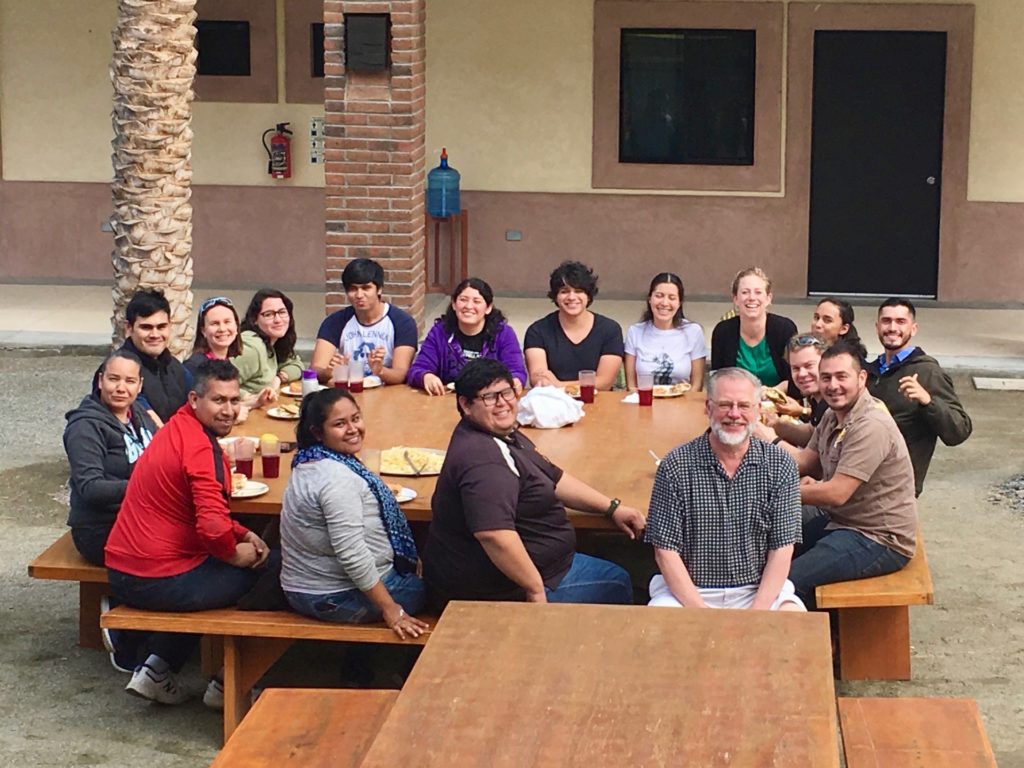
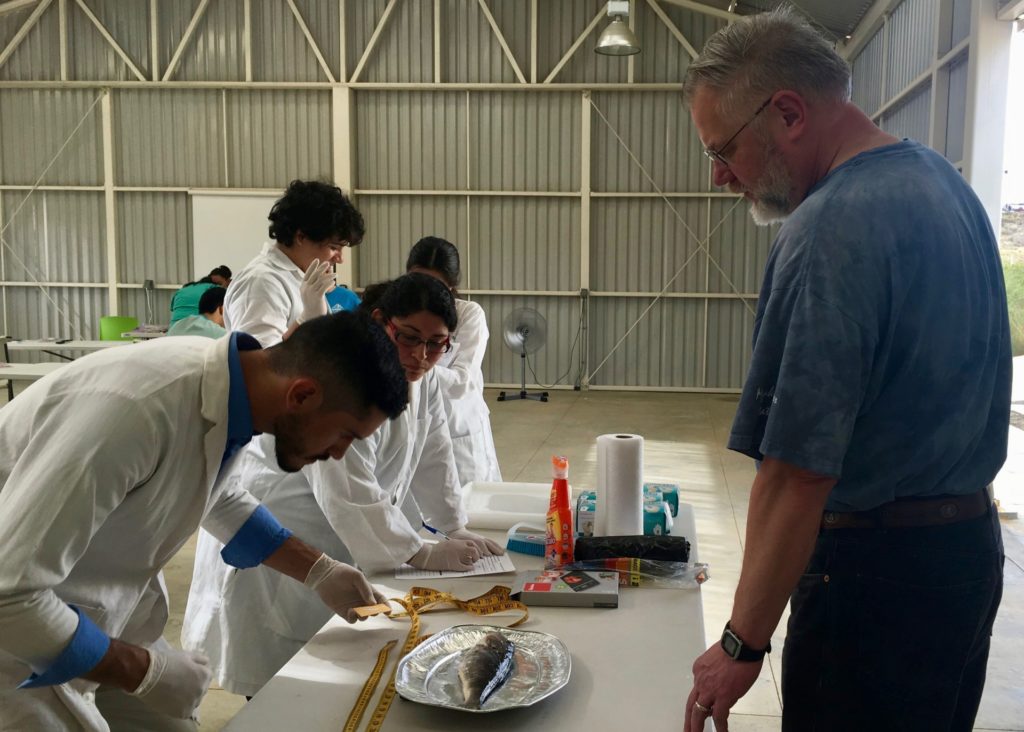
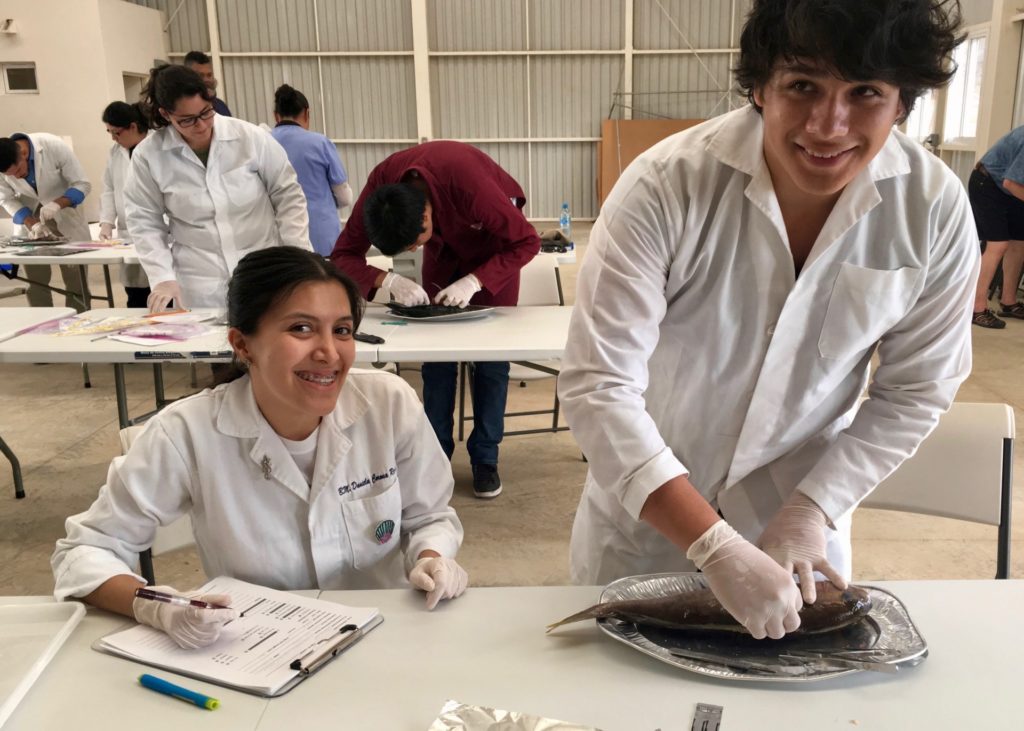
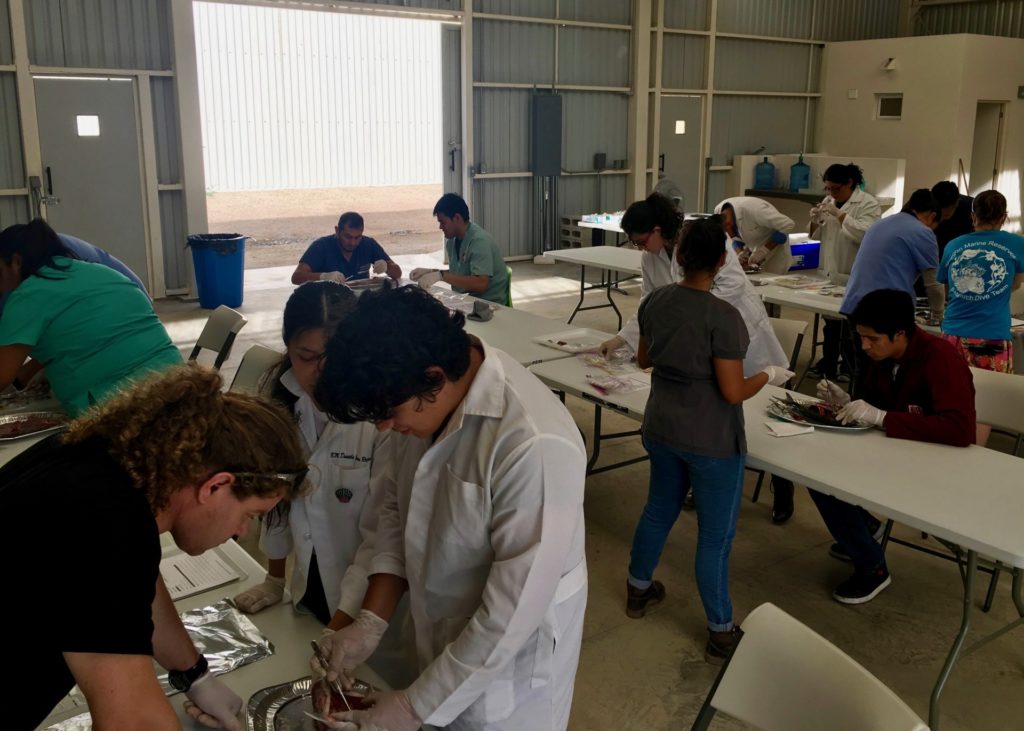
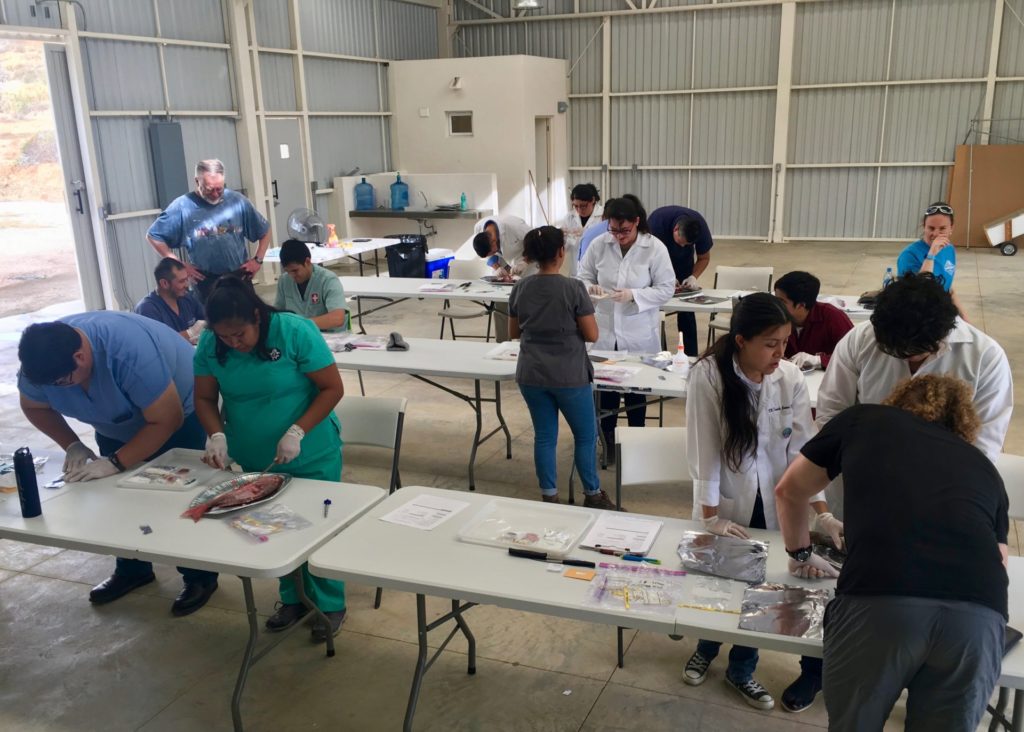
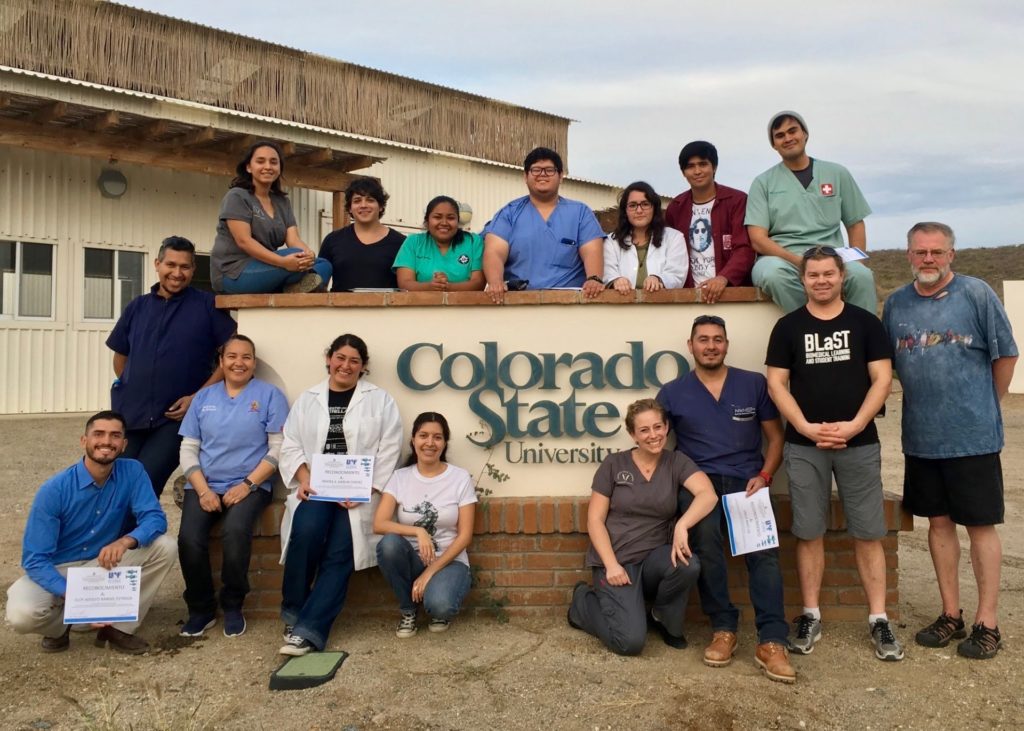
Earlier this month, Colorado State University’s Todos Santos Center co-hosted two back-to-back One Health fish necropsy workshops with instructors from the University of Alaska Fairbanks (UAF), focusing on the role fish play in ecosystems, the health of those fish, and how the health of oceans and aquatic life affects human health and other species.
“As a veterinarian and educator who has worked with the Todos Santos Center for four years, to me this workshop embodied the true spirit of what we hope for CSU Todos Santos to achieve,” said Dr. Danielle Straatmann, director of the Todos Santos veterinary externship program. Straatmann helped coordinate the workshops for local residents and students.
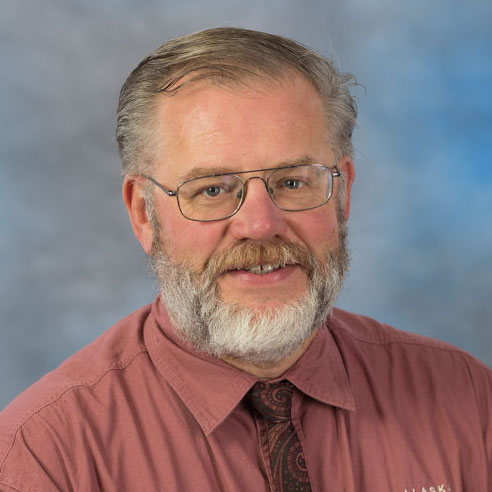
The workshops were led by Dr. Todd O’Hara, a veterinary toxicologist, and Andrew Cyr, a Ph.D. candidate. O’Hara has collaborated with numerous researchers in Baja California Sur (BCS) over the past few years. It was his vision to bring One Health fish necropsy workshops to other BCS communities, including Todos Santos.
O’Hara and Cyr were invited by CSU’s College of Veterinary Medicine and Biomedical Sciences to lead the workshops as part of the UAF/CSU Collaborative Program, now in its third year.
“The One Health umbrella is all-encompassing and inclusive; it spans species, ecosystems, political boundaries, economies, peoples and cultures,” said Cyr. “Understanding this allows us to better appreciate how a One Health perspective can enhance environmental, wildlife, and human health.”
“I feel very fortunate to have been afforded the opportunity to work with the CSU program, local students and professionals, and the local fishing culture in Todos Santos to better understand One Health and how it impacts all parts of the environment,” Cyr added.
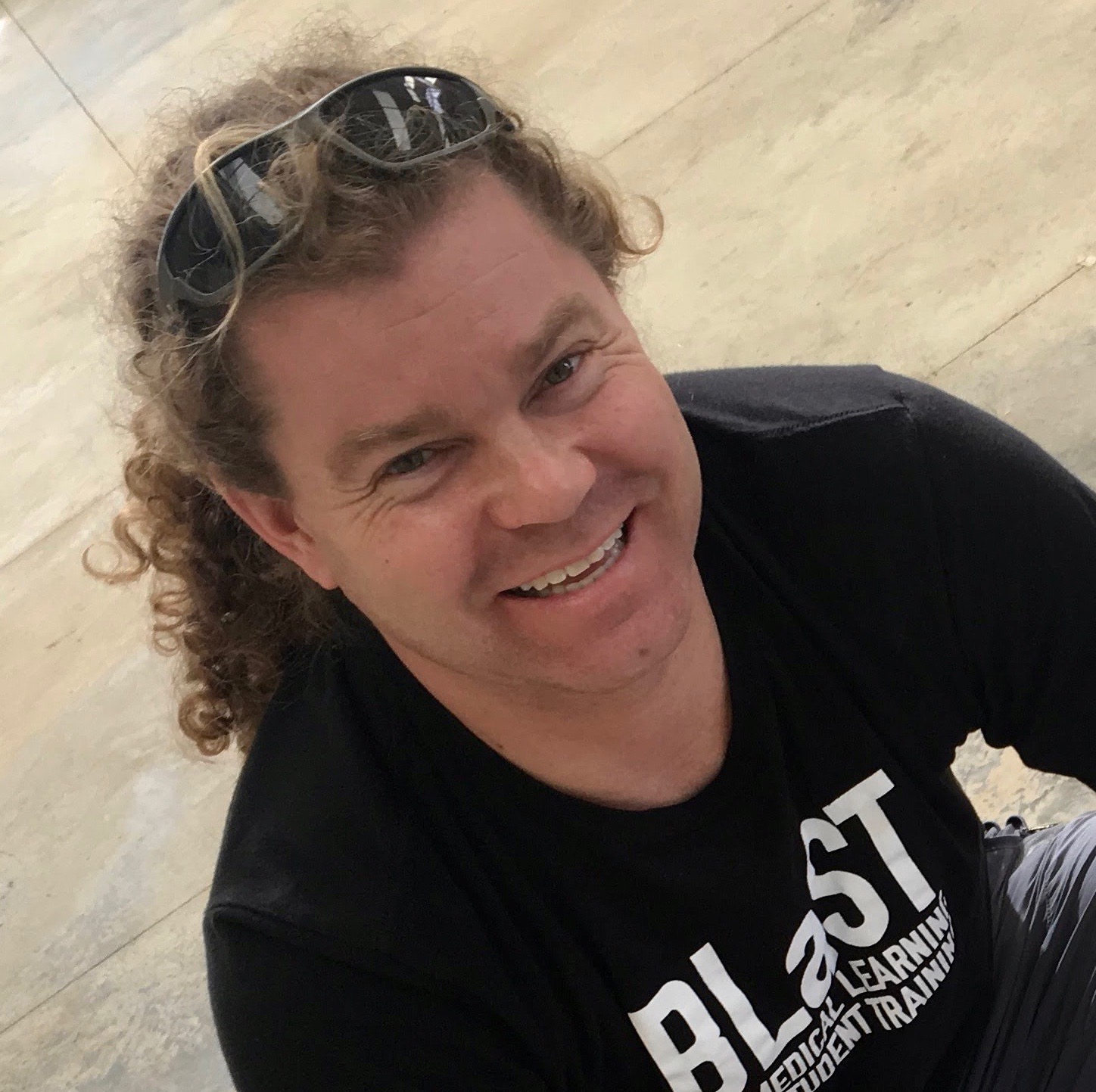
Drawing community connections
Twenty-one individuals participated in the workshops, including three CSU students. The first workshop served local community members and CSU students; the second included 12 participants from BCS. Participants ranged from veterinary medicine and marine biology students to educators and professionals in the fields of food safety, marine biology, and wildlife veterinary medicine.
Four local fishermen also attended the workshop, one of whom is employed by the Todos Santos Center. The fishermen shared their experience and knowledge about the kinds of fish they see in the area, as well as common diseases and how to react when certain symptoms are identified in fish.
Participants learned how to properly collect, store, and process samples from fish, including muscle, stomach contents, and liver tissue. Samples collected during the workshop will be tested for mercury and other heavy metals to determine toxicity levels in oceans and local habitats.
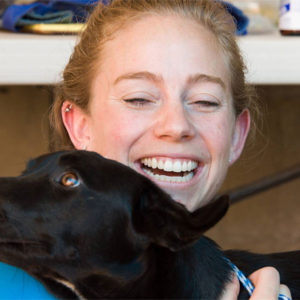
“Sitting at the table with so many individuals, it was neat to see how the different facts and stories come together to shed light on the health and safety of our food systems, and the future of our food,” Straatmann said.
All fish used in the workshop were purchased from local fisherman who caught them out of the Pacific Ocean. The workshops were partially funded through a BLaST grant, which promotes science and technology education in rural communities. Research findings from the program will go toward the grant’s continuation.
The Todos Santos team hopes to have O’Hara and Cyr become part of a repeatable series at the Center in the future.
“I was truly inspired by Dr. Todd O’Hara and Andrew Cyr, who came from Alaska to Mexico to deliver this workshop,” said Renata Sabina Echeverría Rodríguez, a veterinary medicine and zoo technology student visiting the Todos Santos Center from Universidad De La Salle Bajío while on winter break. “It broadened my horizons and gave me a new perspective on my career.”
“Now that I have returned to classes, I am looking more at research and exchange opportunities, including more workshops. The time I spent with the group from CSU and other students made me think more about what I can do with my future.”
About the CSU Todos Santos Center
The Colorado State University Todos Santos Center is the university’s first international location and is core to CSU’s mission of teaching, research, service and outreach. The Center provides opportunities for CSU students and Baja California Sur residents to collaborate with local partners and businesses to identify needs, conduct research, and produce impactful outcomes.
CSU’s vision in Todos Santos is to cultivate generations of global citizens and to be a part of creating thriving communities through collaboration, experience and exchange of knowledge in areas such as agriculture, infectious disease, elementary education, environmental and social sustainability, wildlife ecology, veterinary medicine, and public health.